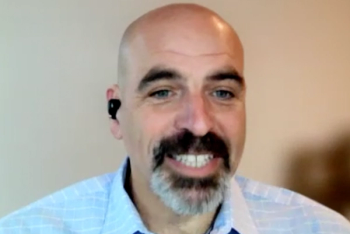
Consumer resilience: Grace-Marie Turner advocates the free-market approach
Many organizations believe a free-market system is the best approach to healthcare, but the free market struggles against lagging public policy. Especially as consumers are demanding greater control, advocates point to other industries in which competition has driven down prices and inspired higher quality.
Behind the nonprofit research organization's mission lies the belief that consumers and their doctors should have authority over healthcare decisions. When it comes to free-market healthcare, one will find few more outspoken advocates than Grace-Marie Turner, the Galen Institute's founder and president.
Q. What was your motivation for creating an institute to promote free-market healthcare design?
Q. How can the market support an equitable healthcare system?
A. The current market is organized to cater to large bureaucracies, whether they're government programs or corporate health insurance programs. In both cases, consumers have very little authority to make decisions about the kind of care and coverage that suit them and their families best. Giving people more options regarding how to direct their spending on healthcare would lead to a more consumer-friendly market and lead to bringing in some of the efficiencies that we see in other sectors of the economy.
However, if consumers have more control over the financing of their healthcare and health insurance, they would make wiser choices about that spending. It also would provide new incentives for the health insurance market to provide more choices and more affordable options for both healthcare and health insurance.
Q. In the legislative arena, what do you view as the biggest ongoing challenges?
A. The State Children's Health Insurance Program (SCHIP) certainly has dominated the debate over the last several months, and it will continue to do so for the next several months. The question is whether or not we use this program designed for lower-income children to expand coverage to kids in more middle-income families.
The president is encouraging states to focus the program on children in lower-income families that make less than about $40,000 yearly. I agree. Then we need to have the larger debate about how to cover children and families at the higher income levels.
The issue of government price negotiation within Medicare Part D is very likely to be another issue that comes back before Congress. The truth is, there's a lot of negotiation going on in the prescription drug benefit program. But it's among private companies negotiating with drug plans to figure out how to get the best deal. If you stop that negotiation and bring the government in, then it's not going to be negotiated prices-it's going to be dictated prices. That creates many market disruptions, including shortages of medicines, people not being able to access the particular drugs they need, and impediments to innovation, especially new drug development.
Q. Many people say the United States should have universal healthcare. Do you think the country is leaning in that direction?
A. Basically the term 'universal healthcare' means that everybody has health insurance. It's whether or not the term means a universal government-run health insurance program that divides people.
Newsletter
Get the latest industry news, event updates, and more from Managed healthcare Executive.























